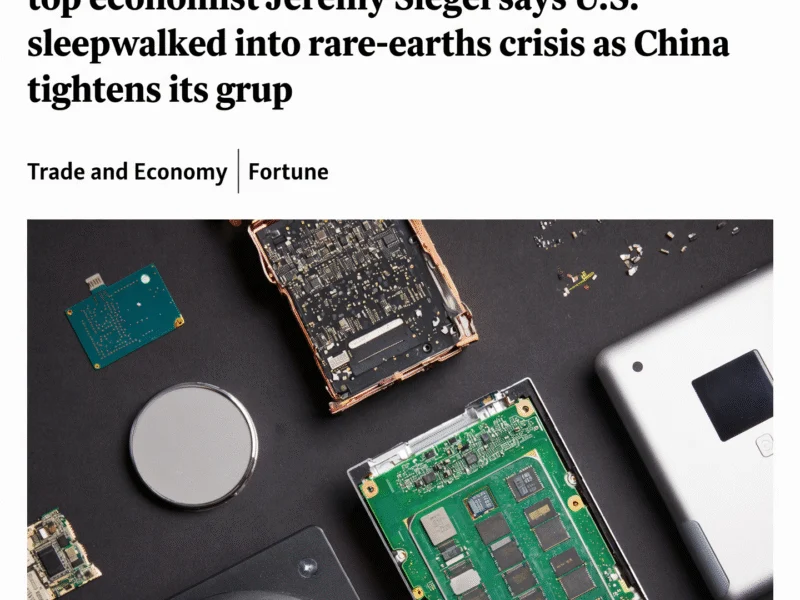Global trade alliances are undergoing fundamental restructuring as U.S. tariff policies create widespread economic uncertainties, according to experts speaking at the opening of the Forbes Global CEO Conference 2025 in Jakarta. The two-day gathering of international business leaders convened under the theme “The World Pivots” to analyze how countries are rerouting capital flows and forging new partnerships in response to shifting American trade policies.
From Deglobalization to Regional Realignment
“The world is not deglobalizing,” declared Ho Kwon Ping, founder and executive chairman of Singapore-based Banyan Tree Holdings. “It’s re-globalizing, moving from being centered around the U.S. towards a new order where countries in the global south are forced to trade among themselves more.” The veteran hospitality executive, who serves as executive chairman of his company, emphasized that this represents a fundamental shift in global economic architecture.
ASEAN’s Strategic Positioning in New Trade Landscape
As the world pivots, Indonesia and its Southeast Asian neighbors need to scale up the technology value chain and move beyond labor-intensive businesses, mirroring China’s transformation in the 1990s. “Trade is rerouting. In 2024 more deals were done [in Indonesia] despite barriers,” noted Anindya Bakrie, chairman of the Indonesia Chamber of Commerce and Industry and CEO of Bakrie & Brothers. “China is thinking about how to make ASEAN a hub for processing, not just manufacturing.”
Bakrie remains optimistic about Indonesia’s economic prospects, believing the country can achieve its ambitious 8% GDP growth target by 2029 despite global trade realignments. This confidence comes as manufacturing efficiency becomes increasingly critical in competitive global markets.
Geopolitical Reordering and Technological Competition
Ho Kwon Ping observed that Pax-Americana has been unraveling for some time, with the world moving toward a paradigm shift affecting not just geopolitical order but fundamental civilizational values. “Western civilization will still be important but not dominant,” he stated, noting China’s accelerating advancement in both technology and knowledge production, particularly amid the proliferation of artificial intelligence applications.
The technological dimension of this competition was further highlighted by George Raymond Zage III, founder and CEO of Singapore-based investment firm Tiga Investments, who described the global economy as “predictably unpredictable.” He noted that while the Trump administration maintains a strong pro-business orientation, the U.S. is falling behind China in scaling energy production—a critical foundation for AI and robotics development. This technological race is accelerating, as recent semiconductor partnerships demonstrate.
Unaddressed Challenges in Global Economic Governance
John A. Quelch, president and executive vice chancellor of Duke Kunshan University in China, identified two persistent issues that global trade realignments have failed to address:
- Wealth distribution inequality despite decades of trade liberalization
- Governance structure deficiencies in global institutions managing economic integration
These structural problems continue to create friction in the international economic system even as countries form new alliances.
Regionalization as Strategic Response
Chartsiri Sophonpanich, president of Bangkok Bank, emphasized that ASEAN nations can benefit from regionalization and localization strategies as countries increasingly leverage emerging technologies. This regional approach allows nations to build resilience against global trade disruptions while capturing value from technological advancements.
The Forbes Global CEO Conference 2025 continues through Wednesday, with additional sessions examining how businesses are adapting to the rapidly changing global trade environment. Regional economic integration and supply chain diversification remain central themes as executives navigate what many describe as the most significant reordering of global trade in decades.



